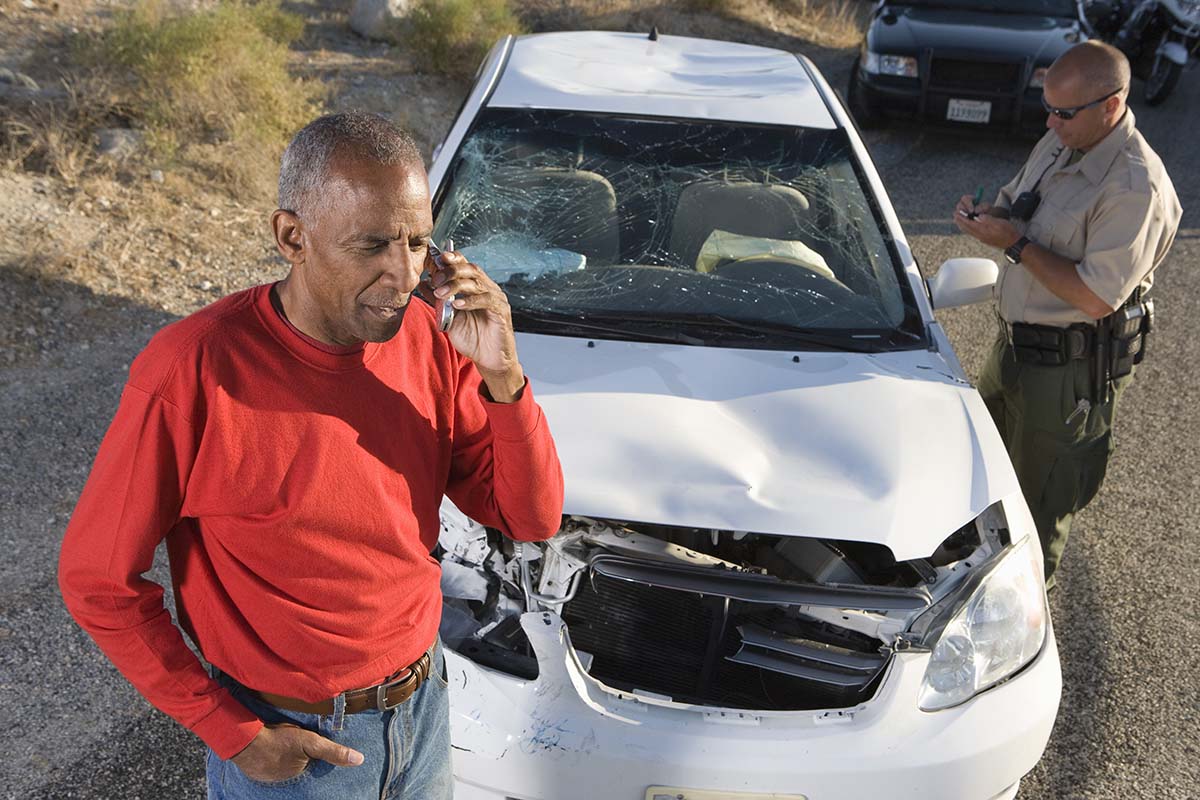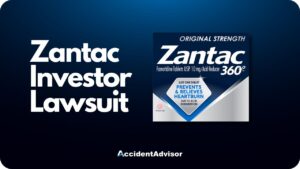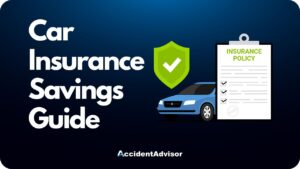The police report is a vital document in the process of receiving compensation for injuries and damage sustained in a car accident. If there is no police report for a car accident, your filing process will change, and you may not receive a settlement from your insurance company.
It’s essential for most cases that you report the car accident as soon as possible. If you wait to do so or fail to report it at all, the lack of an accident police report will make it difficult for you to receive compensation due to a lack of evidence. You may not be at fault for the accident, but the insurance company can claim that without a police report from the scene, your case is not eligible for compensation. You may even be liable for damages if the other driver decides to sue.
Speak with an attorney experienced in car accident cases to learn more about your eligibility for compensation and how to deal with having no police report for a car accident.
Table of Contents
- Do You Need a Police Report for a Car Accident?
- Do You Have to Call the Police After a Minor Car Accident?
- What Happens if You Don’t Report a Car Accident?
- What If Car Accident Was My Fault and No Police Report?
- Can You File a Police Report Days After an Accident?
- Should You Always File a Police Report After an Accident?
- How to File a Police Report for a Car Accident
- How to Get a Car Accident Police Report?
- Do You Need a Lawyer for a Car Accident with No Police Report?
- Summary
Do You Need a Police Report for a Car Accident?
According to most state laws, some car accidents do not need to be reported for the drivers to file compensation for damages. Minor collisions (see below) could occur without significant damage or injury. The drivers may agree to leave the scene of the accident without calling the police and still file for a settlement later.
However, it is safer to report the accident to the police at the scene, especially if you plan on making a case for compensation later. Having no police report for a car accident may not stop you from filing for compensation with your insurance company. However, you could be legally responsible if an accident is serious and you leave the site without reporting it to the police.
Knowing the difference between a minor and a major car accident could make a significant difference in your case.
Do You Have to Call the Police After a Minor Car Accident?
You will often not have to notify the police in the event of a minor car accident, such as a small scrape or fender bender. Accidents on private property also do not require a police report in most cases, such as if you hit your own mailbox.
However, whether a car accident is minor or major can differ by state, with some setting the limit for damages sustained in a minor accident at a few hundred dollars while others list a few thousand dollars as the cutoff. This difference can be significant if you fail to report an accident believing it to be less serious than it is. Having no police report for a car accident of this kind can have serious legal ramifications.
To determine whether a car accident is most likely minor, ask these three questions:
Did anyone get hurt? Accidents involving bodily injuries should always be reported to the police, even if the injuries do not seem serious at the time. Receiving medical attention for those people and documenting the conditions of the crash in an accident police report is a legal requirement. Naturally, if anyone dies in the crash, a police report is also required.
Was the accident anyone’s fault? In some cases, you and the other driver may agree that a minor fender bender was no one’s fault, such as when a road is slippery and the damage is minor. In this case, a police report may not be legally necessary.
Do you plan on filing an insurance claim? It’s much more difficult to file a claim for compensation after a car crash if there is no police report for the accident. If you plan on reporting the accident to the insurance company, you should also report it to the police.
What Happens if You Don’t Report a Car Accident?
To summarize, some minor car accidents do not need to be reported in some states. However, to stay safe, you should notify the police, especially if you plan on filing a claim with your insurance provider.
In fact, most insurance companies require you to report any accident to them, no matter how minor. This is true even if you didn’t report it to the police and don’t plan on filing a claim to be compensated for damages. Some drivers do this because they’re afraid of having their insurance premiums increase after an accident.
There may always be a possibility of dispute, even if the other driver claims they will not report the accident. All it takes is for the other driver to have delayed onset injuries like whiplash from the crash or to notice damage to their car that they then hope to claim. Your insurer may deny you coverage due to your failure to notify them of this accident, which could be far more costly than an increase in your premiums.
What If Car Accident Was My Fault and No Police Report?
If you are in an at-fault state and the accident was your fault, the absence of an accident police report could be a problem. If the other driver decides to pursue compensation for the accident, including potentially suing you for damages, failure to report the accident initially could make your situation much more difficult.
At that point, it will be their word against yours as to how the accident happened and how they sustained their injuries. In a case like this with no police report for the accident, you must record any details of the accident yourself, including gathering the other driver’s identifying information, photographing the scene, collecting witness contact information, and documenting any injuries.
Can You File a Police Report Days After an Accident?
The best thing to do after a car accident is to notify the police so that a police accident report can be filed immediately. However, in some cases, you may feel the need to wait to report the accident to the police. The amount of time you have before becoming legally liable for a major accident differs for each state, but most set the limit between 10 and 30 days.
If you’re asking, “how long do you have to file a police report after a car accident,” you should air on the side of caution and report it immediately. This is especially true if anyone was injured or killed or if damage to the vehicles is more than a couple hundred dollars.
Should You Always File a Police Report After an Accident?
After an accident, some drivers avoid reporting it to avoid a premium increase. They assume it would be easier to work out the details of compensation, if any, with the other driver and avoid the messy process of reporting and filing the accident with the insurer.
However, failure to report an accident can result in a costly cancellation of your car insurance policy. The only exception to this is an accident on your property that did not injure anyone or anything, other than your property. Examples include backing over your fence or through your garage door.
Any accident involving injuries, fatalities, or damage should always be reported.
How to File a Police Report for a Car Accident
The first step to creating a “police report for accident” is to notify a law enforcement officer from the scene of the crash. Your first duty is to the safety of you and your passengers. After that, call 911 to get emergency medical and police personnel to the scene.
Legally, you do not have to answer any of the police’s questions at that time. However, you may want to tell your side of the situation so it goes into the initial report. Just be careful not to admit fault, even accidental fault. Stick to the facts of the situation.
Before the officer leaves, get their name and badge number so you can obtain a copy of the report later. If you wait to report an accident, be sure to tell them the same details about the scene, including details about the other car, the date and time, any statements made, and other observations like the weather.
How to Get a Car Accident Police Report?
To get the right police accident report, you need to write down certain information. You’ll need the date, time, and location of the crash as written down by the officer on the scene. You’ll also need the case number and the names of the drivers.
Not all of this information is needed to look up a police report for an accident, particularly if you have the case number, but it will help you find the report if you run into trouble. It’s important to know the officer who filed the report because you’ll likely need to contact them to obtain a copy.
Do You Need a Lawyer for a Car Accident with No Police Report?
If there is no police report for a car accident, you will need to gather the details of the accident differently. If the accident was not your fault and you were injured, you will need all the information that would have gone into the report such as the time and date of the accident, the conditions of the road, the other driver’s information, the damage sustained, and anything else you think might be relevant.
Police reports help obtain compensation for your injuries, but with an experienced car accident attorney on your side, they are not always necessary. A lawyer can guide you through this process and help you obtain the necessary information to file your case on time.
Summary
If you have no police report for a car accident you were in, you might be worried that you could be denied compensation. If you were not at fault for the accident and were injured, you should still be eligible for a settlement from your insurance company. However, the process for obtaining compensation could be different without an accident police report.
With no police report for the accident, you will need to gather the needed information another way, including documenting the scene yourself, gathering the information of relevant parties, and verifying the damage. If you do notify the police, either at the scene or later, they will document the required evidence and file the report. Make sure to get the case number and the officer’s name so you can obtain a copy of this report later.
Speak with an experienced car accident attorney to learn your options if you don’t have a police accident report. You could still be eligible for compensation.

Rocky Horton
Author
Rocky Horton is a health and safety expert from Chapel Hill, NC. He is the founder of AccidentAdvisor and has been featured in Forbes, Bloomberg, and other publications. Learn more.













